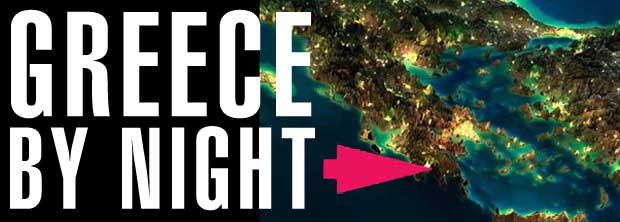Turkey and Greece - Stalemate 2020
August 2020
Background stories on the situation between Turkey and Greece
Story at ABC News [English]. Notice that the ABC article fails to mention the word "Ottoman" a single time*. If you want to show the background of this conflict you must look deeper than just the last few years, or even the last century.
A much better article is at Time Magazine, which does mention the word, but without complete context. Time also seems to believe Turkey has a political environment in which the support for Erdogan and his actions of late within that country is entirely sincere and voluntary, not taking time to explain the coercive nature of Turkey's current political world. But that's a small matter compared to the big issue, quoting their article: "In recent months, Turkey and Greece have each sought to bolster their territorial claims by drawing up exclusive maritime economic zones with Libya and Egypt, respectively."
That's a fair remark, but it doesn't address the main significance of these new maritime zone agreements: they are old-fashioned alliance building, frameworks for the sort of alliances that Europe (and the Mediterranean countries) have trafficked in for centuries and centuries, and which often played as starting points for military showdowns, and, as any perusal of history shows, eventual battles.
Another, even more immediate issue is that these alliances demonstrate that the countries involved (and there are more countries involved than just Turkey and Greece) are not confident "International Law" rules in the Mediterranean. Watching the maneuvers over the last years one might conclude that International Law is pliable and vague, a situation giving Turkey opportunity and Greece consternation.
My question is whether these new alliances are back-up agreements to replace International Law if it completely falls apart in the east Mediterranean because countries are no longer willing to understand it the same way it has been understood for a long time, that is, the Aegean belongs to Greece. Confusion (or feigned confusion) opens the doors to alternative methods of settling disputes, and that means all those warships being gathered there could have more than just "exercises" to keep them busy.
Both articles from Time and ABC lament that the USA is not taking a stronger role in mitigating this growing tension, thus forcing Europe (and possibly Turkey) to figure things out. Hopefully that will cause Europe to become even more proactive (since this current problem has been looming for a long time and could have been faced earlier) and may make way for Europe to consolidate around mutually-understood definitions about border lines. Greece continually has the job of overseeing Europe's 'back door" and if Europe doesn't agree on where that door is, circumstances will force a reckoning on the question.
For a more familiar "let them both give up something to strike a deal" and push off until later the real issue, see this article at Germany's Deutsche Welle [English]
From the Deutsche Welle article: In the current conflict between Greece and Turkey in the eastern Mediterranean, the law is on Athens' side. Still, Greek leaders will have to give some ground to get a deal, says Jannis Papadimitriou.... Legal disputes in such complex cases are weighed in accordance with the United Nations Convention on the Law of the Sea (UNCLOS), a treaty defining rights on the world's oceans. Turkey was not a signatory when it was ratified in 1982. Nevertheless, legal experts are virtually unanimous in the belief that the treaty's rules reflect standing international law, and thus bind all nations to abide by them.
This article at Deutsche Welle is an intelligent analysis, but doesn't deal with a couple of underlying issues. One is that it proposes that Greece should follow through with allowing arbitration by the United Nations which would require both Ankara and Athens to abide by a resulting decision. What is unsaid is that Athens would have to accept a decision, but what are the odds Ankara would? (or, put another way, who believes that Athens would believe that Ankara would do so?) A great deal of trust building would have to happen prior, and that is certainly not the direction that relations are going in at present. (And don't even start trying to parse what Greek political parties would do if any discussion seemed destined to lose parts of Greek territory. A PASOK level political extinction would seem good by comparison.)
A second point is that it is quite possible that the United Nations would simply split the difference, in some manner, distributing rights to each, a weak effort to placate Athens and Ankara which would only antagonize both. However, the immediate result would be a fantastic victory for Turkey by simply giving international endorsement for what its warships are trying to achieve already by escorting the Oruc Reis around the Med and generally defying everyone, anyway.
And to extend the idea a little further, how many governments might take note that with enough military showmanship, what else Europe would be willing to concede?
Turkish President Recep Tayyip Erdogan fumed that acknowledging Greek jurisdiction in the region would mean "imprisoning Turkey within its coastline". "The way Greece laid out Kastellorizo's Exclusive Economic Zone (EEZ) links Greece's zone to Cyprus's, de facto restricting Turkey's to the Antalya bay area," explains Panayotis Tsakonas, director of the security programme at the Hellenic Foundation for European and Foreign Policy (ELIAMEP).
Article at IB Times
At what point would it be fair for Turkey and Greece to agree on some form of mutual, overlapping rights in some areas?
* But, if one digs back into the Ottoman Empire years, one then has to go back even further to Byzantium.
Related: Turkey and Greece
ADVERTISEMENT
Guide Book for the Peloponnese: with Athens, Delphi and Kythira – Paperback – Amazon – Bradt Travel Guides, 288 Pages, November 18, 2025
You will see Amazon links on this web site because I am an Amazon affiliate. I earn from qualifying purchases.
International Real Estate
Buying Real Estate Overseas For Cash Flow (And A Better Life): Get Started With As Little As $50,000
Published by Wiley, 1st edition August 11, 2020, 240 pages
Try Prime Discounted Monthly Offering
Greece: Biography of a Modern Nation - AMAZON - Published March 2020 - 600 Pages



Greece's Golden Visa program
